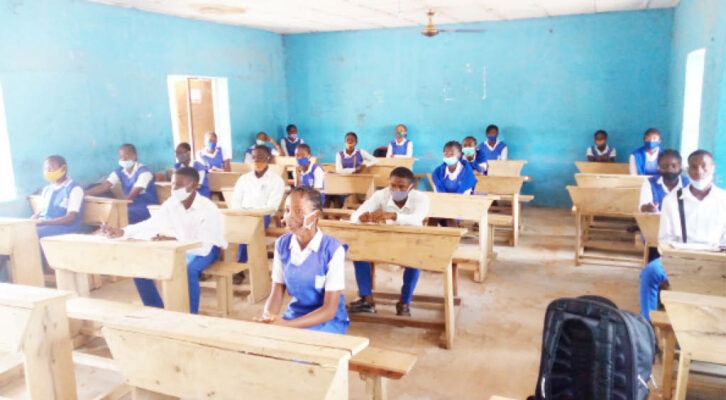The Federal Government has unveiled the full list of subjects to be taught under Nigeria’s newly approved national school curriculum, which will take effect from September 2025.
The curriculum, announced on Sunday and widely circulated on Wednesday by the Special Assistant to President Bola Ahmed Tinubu on Social Media, Dada Olusegun, introduces major reforms aimed at equipping students with modern skills in technology, innovation, and entrepreneurship.
For the first time, digital literacy and coding will be compulsory at the Junior Secondary School (JSS) level, while Senior Secondary School (SSS) students will study advanced subjects such as artificial intelligence, programming, cybersecurity, and data science. The reforms also place strong emphasis on languages, communication, and creative arts, alongside traditional sciences and social sciences.
According to the outline, the curriculum is designed to prepare students not only for higher education but also for practical career paths and entrepreneurial ventures. Below is the full breakdown:
Junior Secondary (JSS 1–3)
- Mathematics: Fractions, decimals, percentages, ratios, proportions, rates, geometry (angles, area, volume), algebra, statistics, graphs, and measurement (km, m, cm, g, kg, ml, °C, time zones).
- English Language: Essay writing (narrative, descriptive), advanced grammar (clauses, idioms), comprehension, vocabulary building, and oral communication (debates, speeches, drama).
- Integrated Science: Physics (motion, forces, energy), chemistry (matter, mixtures, reactions), biology (cells, reproduction, ecology), earth science (climate, natural resources), technology, and laboratory safety.
- Digital Literacy & Coding: MS Word, Excel, PowerPoint, internet research, coding (Python basics, advanced Scratch), and basic robotics.
- Social Studies: Nigerian and African history, geography, civics, economy (trade, money, entrepreneurship basics), and global issues.
- Languages: Advanced proficiency in mother tongue and conversational fluency in a foreign language (French or Arabic).
- Creative Arts: Drawing, painting, crafts, drama, theatre, film basics, and music.
- Physical & Health Education: Sports, fitness, nutrition, reproductive health, first aid, and drug abuse awareness.
Senior Secondary (SS 1–3)
- Mathematics & Applications: Algebra, trigonometry, calculus basics, probability, statistics, financial mathematics, and applied mathematics.
- English & Communication: Advanced essays, academic writing, literary analysis, world literature, research skills, journalism, fact-checking, and public speaking.
- Sciences: Physics (mechanics, waves, electricity, nuclear physics), chemistry (organic, inorganic, industrial, analytical), biology (genetics, ecology, biotechnology), and environmental science.
- Technology & Innovation: Programming (Python, JavaScript, HTML/CSS), data science basics, artificial intelligence, robotics, digital entrepreneurship, and cybersecurity.
- Social Sciences: Government & law, economics (micro, macro, trade), history (Africa, world revolutions), philosophy & ethics, and entrepreneurship.
- Languages: Advanced mother tongue literature, fluency in at least one international language (French, Arabic, or Chinese optional).
- Creative Arts & Innovation: Fine arts, music, drama, film, and media production.
- Physical & Health Education: Advanced sports training, mental health, first aid & CPR, and leadership skills.
- Research & Project Work: Final-year research project, including data collection, analysis, presentation, and defense.
Education experts say the updated curriculum reflects Nigeria’s push to align with global standards, blending traditional academic learning with digital skills and real-world applications. The Federal Government added that the initiative aims to raise a new generation of globally competitive, tech-savvy, and entrepreneurial-minded Nigerians.





